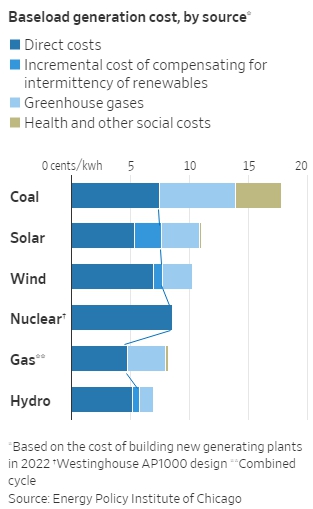You are not reading the Rant for a weekly dose of pink hearts, yellow moons, orange stars, and green clovers. You read it for the spicy beef jerky – even vegetarians. I mean, vegetarians can’t resist the beef jerky. Nobody wants to eat a vegetarian. Anyway, the Rant is a dose of what you need to hear and what you want to hear. This week is no exception.
Confession
But first, I have a confession to make. Exactly one year ago, I wrote about the Paris climate accord in The Abominable Snowman (inferring that it was toothless). I had only read about the agreement. I did not read the agreement. Here ends the confession.
The Punchline
Last week I read an interesting article in The Wall Street Journal explaining how Climate Change has Run Its Course, subtitled, “Its descent into social-justice identity politics is the last gasp of a cause that has lost its vitality.”
The author goes on to say, climate change itself is not over but, “I mean simply that climate change is no longer a pre-eminent policy issue. All that remains is boilerplate rhetoric from the political class, frivolous nuisance lawsuits, and bureaucratic mandates on behalf of special-interest renewable-energy rent seekers.”
Hmm.
The Wrong Turn and the Sociology Behind It
If you want to make a difference, you cannot choose sides, except to know which side you need to win over. Roots of failure establish when frustration sets in, name calling ensues, and people retreat to their tribe for aid and comfort of the echo chamber. That is not where or how to make a difference.
The author of the WSJ article references an interesting paper written in 1972. The paper describes the five phases of the “issue-attention cycle.” They are:
- Pre-problem stage
- Alarmed discovery
- Realization of cost
- Decline of public interest
- Post problem stage
You can read the paper. It doesn’t precisely fit the climate change trajectory, primarily regarding stage 1. However, stage two of the paper describes how every obstacle cannot be eliminated nor every problem solved with no “reordering” of society.
What’s Working?
What is working is the somewhat-free market. The Wall Street Journal just published an article describing how the most carbon-intensive source of electricity, coal, is almost overtaken by renewables plus backup.
I modified the chart nearby, from The Wall Street Journal, to indicate the direct cost of the various sources of electricity, skipping the esoteric costs of greenhouse gas and social costs. They are all quite even, except for natural gas and hydro, which have substantial price advantages.
One can easily argue that pure economics have driven the carbon reduction to date. Oh, and I should add lucrative tax credits have also shifted cost from renewable generators to taxpayers, and the national debt. But let’s face it, at this point subsidies are about political payouts and not carbon reduction.
What Didn’t
Ok, team. Let’s get back to the opening paragraphs where I mentioned “social justice identity politics” and the Paris accord.
Have you watched the 1980s movie “K-9” with Jim Belushi? Do it. It’s a comedy where Belushi is paired with a German Shepard police dog named Jerry Lee. Jerry’s attack command is “Cochise.”
Now, consider a pack of conservatives named Jerry. The Paris accord is packed with words and phrases containing the attack code, COCHISE!
Here are some Cochise phrases from the Paris agreement (they are all unmodified quotes):
- principle of equity and common but differentiated responsibilities and respective capabilities, in the light of different national circumstances
- progressive response
- transfer of technology
- equitable access
- eradication of poverty
- ending hunger
- creation of decent work and quality jobs
- human rights
- right to health
- rights of indigenous people
- migrants, children, persons with disabilities
- gender equality, empowerment of women
- Mother Earth
- ‘climate justice’
Every one of those terms drives the Jerrys absolutely crazy, not because they are not worthwhile, but because they leak what is perceived to be the underlying purpose of the agreement – to cut wealthy countries, particularly, the US, down to size. It’s hard to find any argument that won’t make the opposition dig in. Those phrases above are entirely fatal to the effort.
This was a fatal mistake of the Paris agreement. I have fought intensely for efficiency on the grounds of economics with an information campaign.
Not Serious
A sure sign that people aren’t serious about solving the problem is that there is zero, or in fact less than zero (that means negative), support for the only two sources of zero-emission power: nuclear and hydro. I’ve seen dozens of articles where greens rip the DOE for suggesting we subsidize nukes. The subsidies were for different reasons, but it is obvious where those people stand. Nukes are a necessary, albeit more expensive, means to curtail the climate change threat. You cannot be that purely ideological and solve any major problem. Period.
Stage 4
Stage four of the Issue Attention Cycle involves a gradual decline in public interest. Outside our bubble, I believe that is the case. See Chicken Tax for one case. When fuel prices decline, sales of large SUVs and light trucks soar.
Folks fall into either of three categories in stage four:
- Discouraged
- Threatened
- Bored
This is the same place in which the national debt resides. People are bored of that, and until there is a Constitutional convention of states, it will never be fixed in a non-destructive way. That problem is likely to fix itself, and it won’t be pretty.
The emission problem will only be fixed if it costs less, not counting the abstruse externalities of energy production.
Efficiency, anyone?
